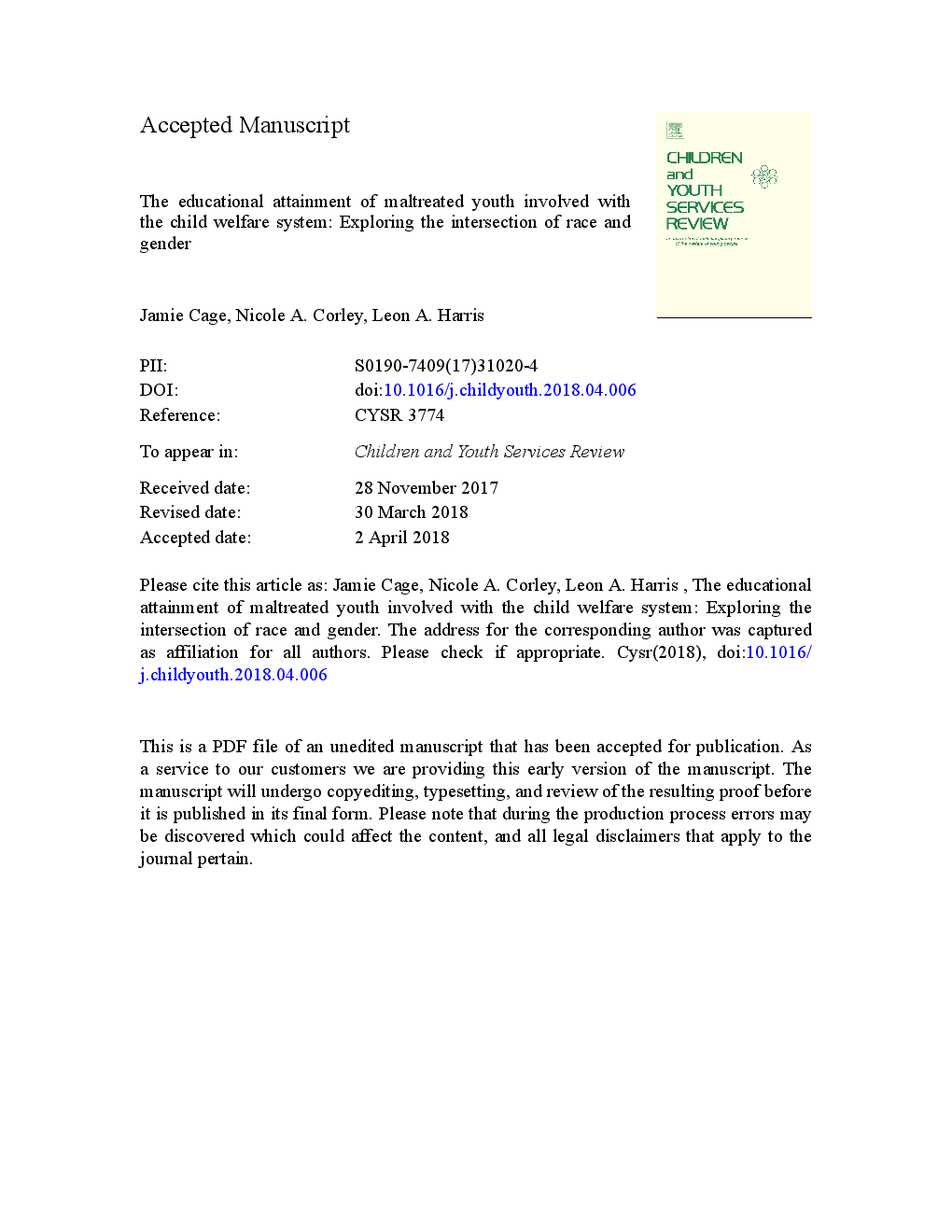ترجمه فارسی عنوان مقاله
دست یابی به تحصیلات جوانان متخلف که با سیستم رفاه کودکان مواجه می شوند: بررسی تقاطع نژاد و جنسیت
عنوان انگلیسی
The educational attainment of maltreated youth involved with the child welfare system: Exploring the intersection of race and gender
| کد مقاله | سال انتشار | تعداد صفحات مقاله انگلیسی |
|---|---|---|
| 145901 | 2018 | 35 صفحه PDF |
منبع

Publisher : Elsevier - Science Direct (الزویر - ساینس دایرکت)
Journal : Children and Youth Services Review, Volume 88, May 2018, Pages 550-557
ترجمه کلمات کلیدی
بدرفتاری با کودک، دستیابی به امکانات آموزشی، بینش مسابقه، جنسیت،
کلمات کلیدی انگلیسی
Child maltreatment; Educational attainment; Intersectionality; Race; Gender;

